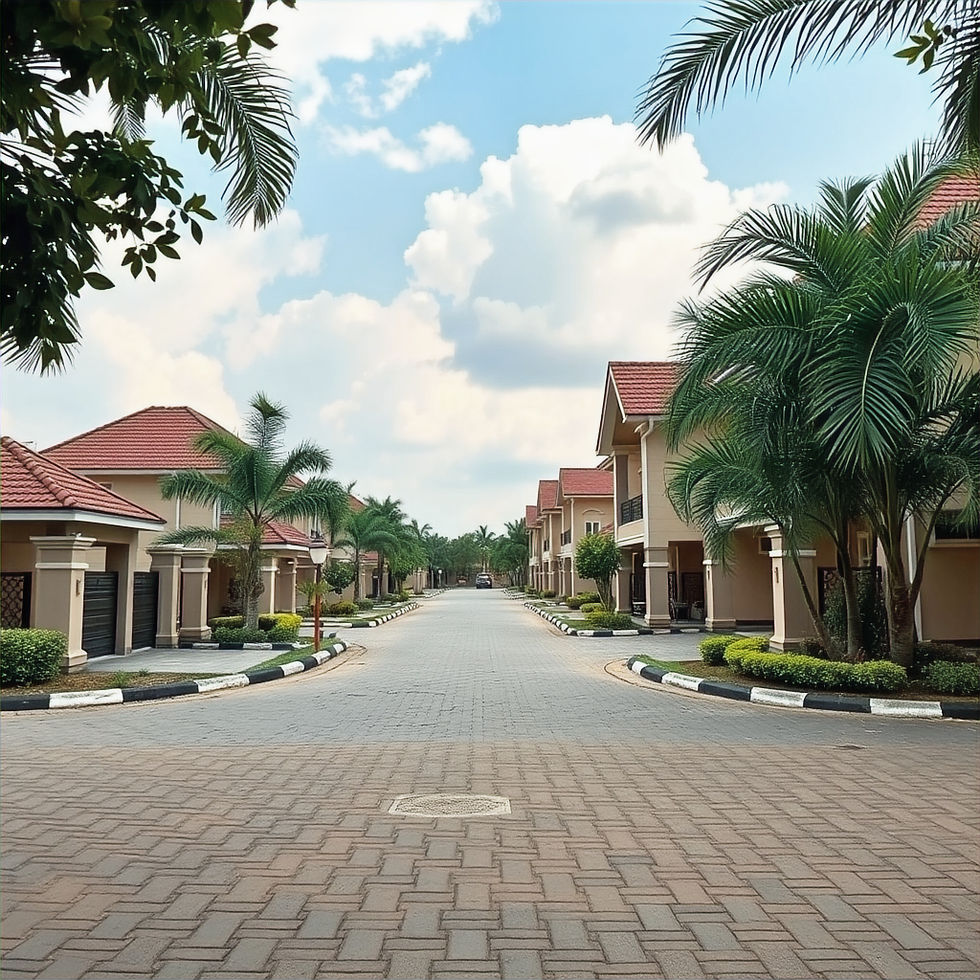- Dec 2, 2025
- 4 min read
Finding the perfect home can be a thrilling yet challenging experience. When it comes to three-bedroom homes, the options are vast, and the decision requires careful consideration. Whether you are a growing family, a couple needing extra space, or someone looking for a versatile property, a three-bedroom home offers flexibility and comfort. This guide will walk you through the essential steps and tips to help you find the ideal three-bedroom home that fits your lifestyle and budget.
What to Look for in Three-Bedroom Homes
When searching for three-bedroom homes, it is important to focus on several key factors that will impact your daily living and long-term satisfaction.
Location and Neighborhood
The location of your home is crucial. Consider proximity to work, schools, healthcare facilities, and recreational areas. A safe and friendly neighborhood with good infrastructure can significantly enhance your quality of life.
Check crime rates and community reviews.
Look for nearby amenities like parks, shopping centers, and public transport.
Consider future development plans in the area that might affect property value.
Layout and Space
The layout of a three-bedroom home should suit your needs. Think about how you will use each room.
Do you need a home office or guest room?
Is the kitchen spacious and functional?
Are the bedrooms well-sized and positioned for privacy?
Open floor plans are popular for creating a sense of space, while traditional layouts may offer more defined rooms.
Condition and Age of the Property
Older homes may have charm but could require more maintenance. Newer homes might offer modern features and energy efficiency.
Inspect the foundation, roof, plumbing, and electrical systems.
Ask about recent renovations or repairs.
Consider the cost of potential upgrades.
Outdoor Space
A garden, patio, or yard can be a valuable addition, especially for families or those who enjoy outdoor activities.
Assess the size and usability of the outdoor area.
Check for privacy and landscaping potential.

Benefits of Choosing Three-Bedroom Homes
Three-bedroom homes offer a balance of space, affordability, and versatility. Here are some advantages to consider:
Flexibility for Growing Families
Three bedrooms provide enough space for parents and children, with room for a nursery or playroom.
Space for Home Office or Guests
With remote work becoming common, having a dedicated office space is a big plus. Alternatively, one bedroom can serve as a guest room.
Investment Potential
Three-bedroom homes often appeal to a wide range of buyers and renters, making them a smart investment choice.
Cost-Effective Living
Compared to larger homes, three-bedroom properties usually have lower maintenance and utility costs while still offering ample space.

How much does a 3 bedroom house cost in the US?
Understanding the cost of a 3 bedroom house is essential for budgeting and planning your purchase. Prices vary widely depending on location, size, and condition.
Average Price Range
In urban areas, prices can range from $250,000 to over $600,000.
Suburban and rural areas often offer more affordable options, sometimes under $200,000.
Factors Influencing Price
Location: Homes in high-demand cities or neighborhoods cost more.
Size and Features: Larger homes with modern amenities command higher prices.
Market Trends: Real estate markets fluctuate, so timing can affect cost.
Financing and Additional Costs
Consider mortgage rates, down payments, and loan terms.
Budget for closing costs, property taxes, insurance, and maintenance.
Researching local market conditions and consulting with real estate professionals can help you find a property that fits your financial plan.

Tips for Viewing and Inspecting Three-Bedroom Homes
When you start visiting properties, keep these tips in mind to make the most of your viewings:
Prepare a Checklist
Room sizes and layout
Condition of walls, floors, and ceilings
Functionality of doors and windows
Kitchen and bathroom fixtures
Storage space availability
Ask Questions
How old is the property?
Are there any known issues or repairs needed?
What are the average utility costs?
How is the neighborhood community?
Take Notes and Photos
Document your impressions to compare properties later.
Bring a Trusted Expert
Consider hiring a professional home inspector to identify hidden problems.
Making the Final Decision on Your Three-Bedroom Home
Choosing the right home involves balancing your needs, preferences, and budget. Here are some steps to help you finalize your decision:
Evaluate Your Priorities
Rank what matters most - location, size, condition, price, or outdoor space.
Compare Properties
Review your notes and photos to see which home ticks the most boxes.
Negotiate Smartly
Work with your real estate agent to negotiate a fair price and terms.
Plan for the Future
Think about how long you plan to stay and potential changes in your family or work situation.
Secure Financing
Get pre-approved for a mortgage to strengthen your offer.
By following these guidelines, you can confidently find a 3 bedroom house that feels like home and meets your needs.
Finding the perfect three-bedroom home is a journey that requires patience, research, and careful planning. With the right approach, you can discover a property that offers comfort, convenience, and value for years to come. Happy house hunting!









